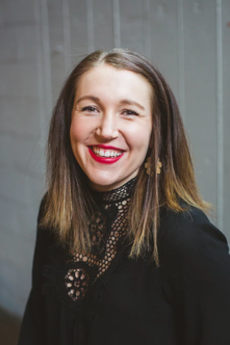Supporting student mental health at the School of Dentistry
A new mental health resource has opened the door to wellness and ongoing support for School of Dentistry students.
Dental school is challenging. The coursework is intense, and the experience can be isolating for the learner. The School of Dentistry has a longstanding mission to support whole-person wellness for all students. The newest link in this chain is the hiring of an embedded mental health professional.
Nicole Pierce-Risvold, LPCC, has worked as a therapist in educational spaces for the last twelve years. Though she has worked with children through young adults, she found her niche with adolescents and young adults.
“I love being able to help, but also to educate,” Pierce-Risvold explained. “My job is to find ways to support students and faculty, in whatever capacity I can.”
At the University of Minnesota, that means splitting her time between the School of Dentistry and the College of Veterinary Medicine. The majority of Pierce-Risvold’s time is spent seeing students as patients, with an additional focus on outreach and education on self care and mental wellness.
In the time that Pierce-Risvold has spent at the School of Dentistry so far, she has been pleased to see students taking advantage of her presence and seeking support. She sees common themes, like loneliness and stress, come up over and over again for these students.
“Some students, especially those who have been part of pandemic learning periods, struggle to make connections,” she explained. “And stress and workload can impact the personal and social life you can have.”
Pierce-Risvold encourages her patients to balance their workload and personal needs to the best of their ability—a difficult feat in school. She encourages them to seek out a two-to-one ratio in those stressful periods, spending an hour on something personal or social for every two hours spent on schoolwork.
“There will always be something to read, or to study, but humans are meant to connect,” she said. “It seems relieving to students when we talk about that ratio, and when I give them tangible information.”
Understanding the logical and scientific ways her patients’ minds work, Pierce-Risvold meets her students where they’re at and approaches their struggles from a neuroscience perspective.
“I think that resonates with dentistry students, who feel at home in the science brain,” she said. “Just giving them permission and validation to rest goes a long way.”
Moving forward in her role, Pierce-Risvold hopes to continue encouraging learners to seek out her support, with the knowledge that their conversations and meetings are fully confidential. She also hopes to partner with ongoing wellbeing initiatives and create spaces where learners can relax, re-center or unwind—whether she sees those students or not.
“My goal is to create something that serves all students,” she said. “Not just the students that walk through my doors, but the students that have never met me: to create opportunities for all students to access resources that enhance their mental health.”
Students can make an appointment with Pierce-Risvold by calling Student Counseling Services or by emailing her directly.
